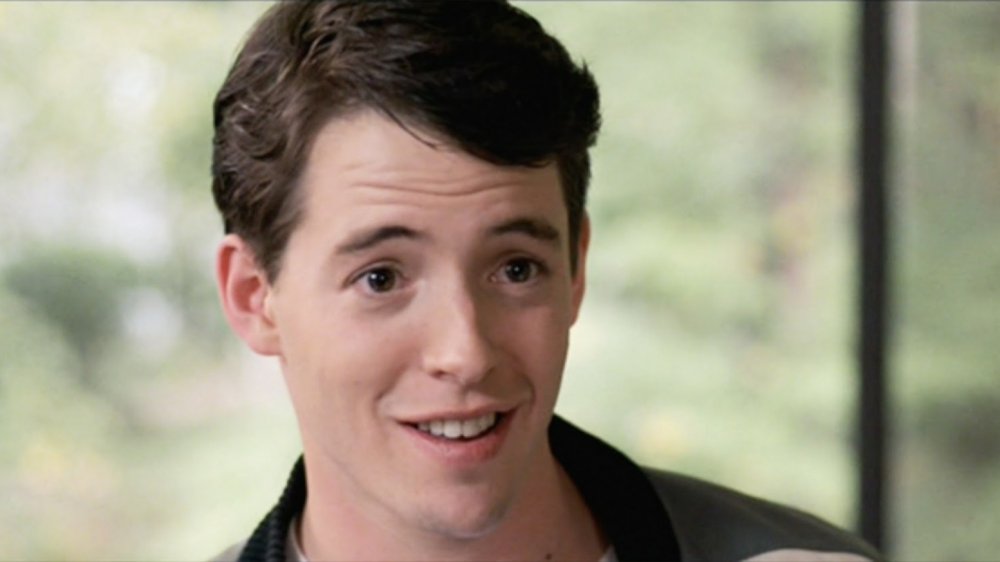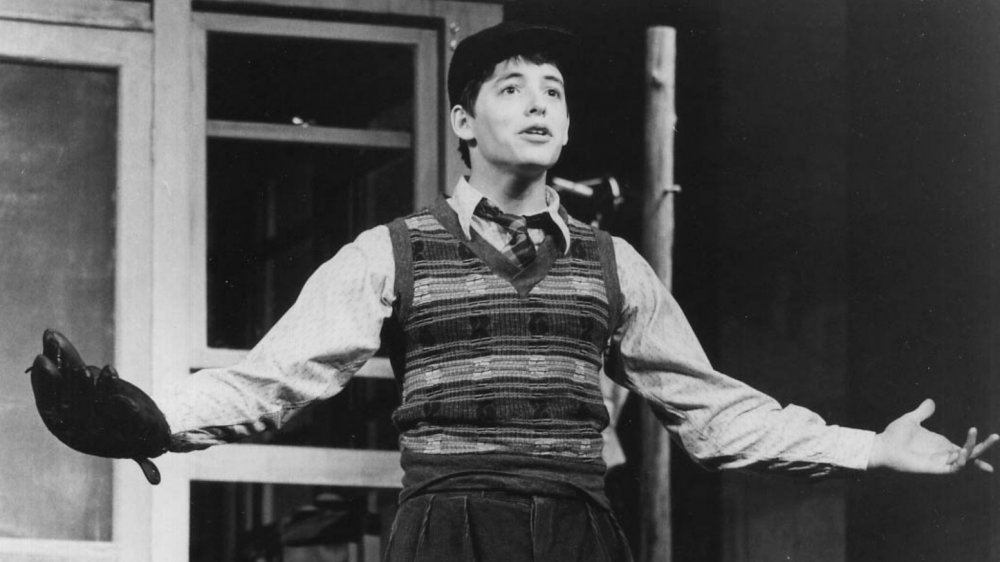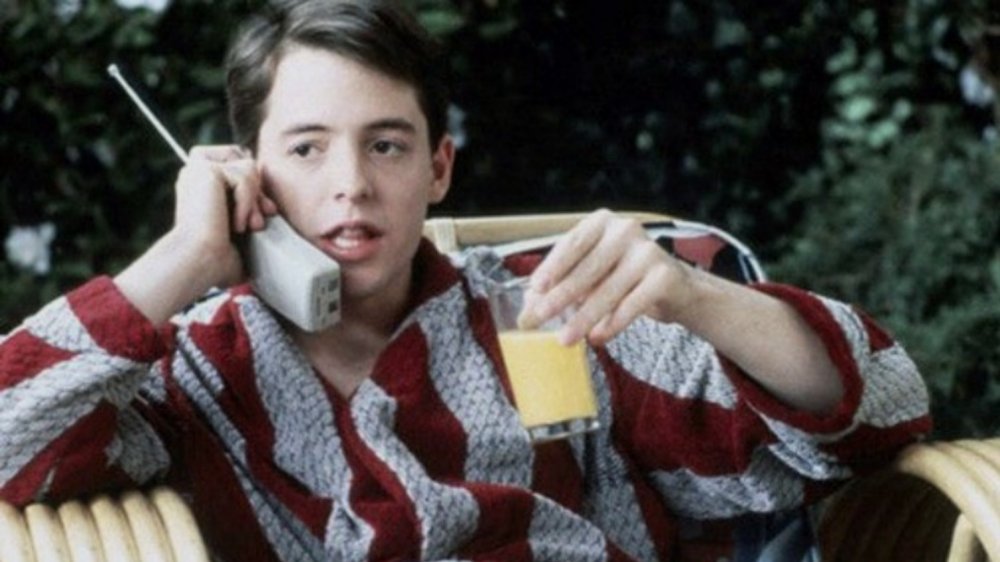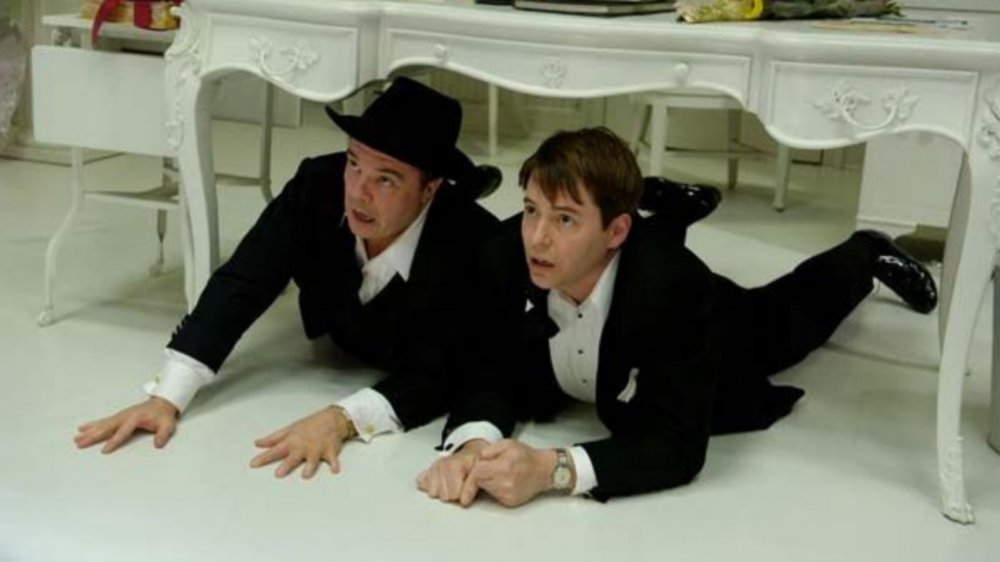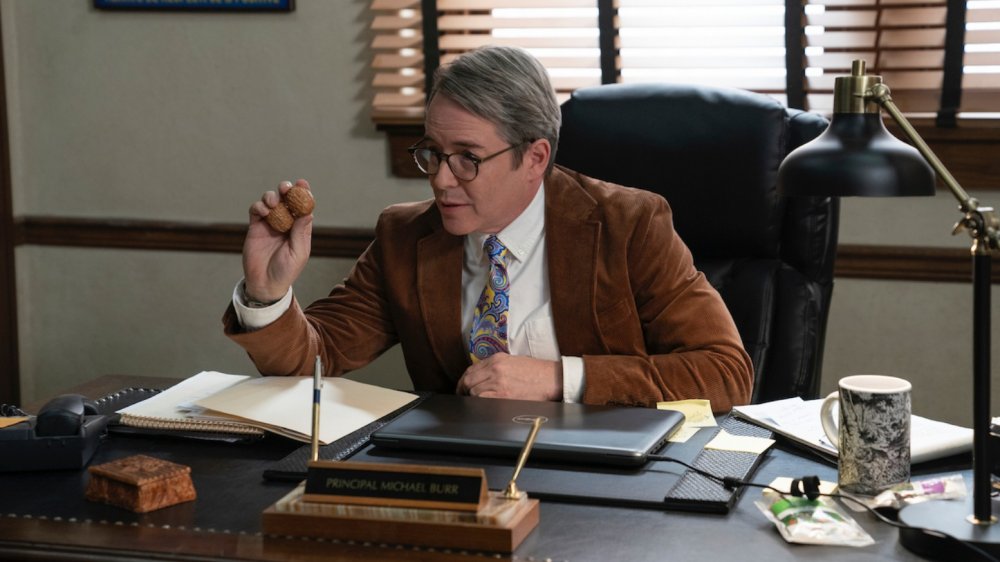Whatever Happened To Matthew Broderick?
It's no secret that the film industry is a constantly evolving beast, and being involved in it requires a certain amount of success that many woefully cannot sustain. However, for some, the decision to dedicate their time to other ventures comes easy, and backing out of the limelight in favor of passion projects is a welcome change of pace. In the case of Matthew Broderick, once one of cinema's most promising rising stars, self-interest ultimately prevailed over fame and fortune.
There was a time when Broderick was riding a wave of momentum few in Hollywood ever harness, and he held on for the better part of two decades. However, as the 20th century drew to a close, mainstream audiences began to see less and less of him at the movies, and when he did appear, the caliber of his work wasn't measuring up to his previous efforts. He eventually starred in so few noteworthy projects that many began to speculate that his retirement was imminent, but this is still not the case, as of this writing.
Here's what's happened to Matthew Broderick throughout his roller coaster of a career.
Matthew Broderick found his footing on the stage
Like most actors, Broderick didn't just arrive on the Hollywood scene as an established name, he had to work his way up the ladder to get to the top. Following his high school graduation, he enrolled at the HB Studio, where he began his journey into acting, landing his first role in a workshop production of Horton Foote's On Valentines Day, according to the Los Angeles Times, and later worked on Harvey Fierstein's Torch Song Trilogy. He was very much committed to his craft, and his dedication didn't go unnoticed for very long.
Thanks to a positive review from New York Times theater critic Mel Gussow, Broderick was fast-tracked onto Broadway, and his life was never the same. By the mid-1980s, Broderick was becoming a major player in the theater scene, landing the role of Eugene Morris Jerome in Neil Simon's Eugene Trilogy. His performance in Brighton Beach Memoirs even earned him his first of two Tony Awards for Best Featured Actor in a Play. The sky truly was the limit for the aspiring thespian, and the transition to film was all but an inevitability.
The blessing and curse of becoming Ferris Bueller
After picking up a handful of smaller credits, Broderick took on the title role in John Hughes' 1986 classic Ferris Bueller's Day Off. His portrayal of the fun-loving, slacker teenager resonated with younger audiences, making it a resounding success at the box office and with critics.
Ferris Bueller went on to become Broderick's career-defining performance, which is a major accomplishment considering the movie's longevity, but it wasn't without its drawbacks in the long run. When you hit it so big, so quickly, it can be difficult to move on from that one specific role that made you famous in the eyes of fans: Just ask Robert Pattinson, who is only now escaping from his Edward Cullen stigma now that he's about to star in The Batman. For Broderick, he attempted to do the same, time and time again, but never truly broke out of his Ferris Bueller shell with the mainstream audiences. Nevertheless, he trudged on, and continued to work a steady film schedule for the remainder of the eighties and into the nineties.
Broderick's triumphant return to Broadway
As the nineties rolled on, so did Matthew Broderick's career on the big screen, where he decided to broaden his horizons. He still worked comedies like The Cable Guy, but he also gave voice acting a try, playing the adult Simba in Disney's The Lion King. He also dipped his toes in the dramatic pool with Mrs. Parker and the Vicious Circle, and Walking the Waterline. Despite his moderate success, he leapt back into the stage world in the mid-nineties and added a handful of musicals to his rapidly growing resume.
One of his biggest hits was How To Succeed in Business Without Really Trying, a role that landed him his second Tony award. By the turn of the century, he also found some success in the 2001 stage and 2005 film adaptations of Mel Brooks' The Producers. He received a nomination for yet another Tony award for the musical, however, lost out to his costar Nathan Lane. Still, he was working on projects that he had a vested interest in, and that's more important than any accolade or payday out there.
He's currently balancing theater, film, and television
Broderick remains largely a stage performer, working at London's West End for the first time in 2019, in the production The Starry Messenger. In 2021, as reported by the New York Times, he'll star in Neil Simon's Plaza Suite alongside his wife of 23 years, Sarah Jessica Parker, whom he hit it off with over their mutual love for theater.
As a result of the grueling preparation that goes into such a production, Broderick hasn't been able to commit himself to many huge blockbusters and/or long-running television shows, but that's not to say he isn't working on a few. He's still a relatively frequent face in the comedy genre, appearing in titles such as Trainwreck, To Dust, and Lazy Susan, averaging around two to three credits per year. His television work, on the other hand, is much more frequent, since he tends to make only brief guest appearances. 2019 saw him lend his voice to Rick & Morty, parody United States Secretary of State Mike Pompeo on Saturday Night Live, and jump in for ten episodes of Netflix's post-apocalyptic comedy Daybreak, among other appearances.
Broderick may not be reaching Ferris Bueller levels of mainstream attention these days, but — as supported by his hefty workload, in nearly every visual medium — Matthew Broderick has done anything but disappear.
